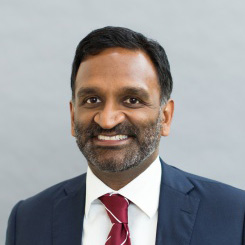I’m currently in Lisbon ahead of Acton’s fourth conference in the seven-part series Poverty, Entrepreneurship, and Integral Development. Entitled “Catholic Social Teaching, Free Enterprise, and Poverty”, it will take place on Tuesday, November 9 at the Catholic University of Portugal. Click here for more information or if you happen to be in the Lisbon area and want to join us.
Tuesday’s conference was designed to focus on the Portuguese-speaking world, primarily because of its inter-continental scope and close connection to the Catholic faith, and to discuss the challenges posed by extreme poverty in developing countries and what can be done to address them. As often happens with our conferences, the reality of current events has a way of stressing the importance of principles that support a free and virtuous society.
I was still reeling from the news that the U.S. Federal Reserve will print $600 billion of new money upon my arrival yesterday when I read that the Portuguese prime minister criticized “speculative movements” for the country’s high bond yields.
Later in the day, I learned of the recent election of the left-wing Dilma Rousseff in Brazil, and her desires to continue her predecessor Lula’s economic reforms towards an environment of inflation targeting and broad fiscal responsibility. Rather surprising coming from a former guerilla fighter whose tendencies should be to distrust markets and increase the size and scope of the state.
And finally, the United Nations published its 2010 Human Development Report, which shows that developing countries have become much wealthier and healthier in the last 40 years, which not coincidentally is more or less when many of these countries have opened themselves up to the benefits of free markets, both domestically and internationally. The UNDP report’s central thesis that “people are the real wealth of a nation” echoes, of course, Pope John Paul II’s 1991 social encyclical Centesimus Annus and its proclamation that “man’s greatest resource is man himself” (n. 32).
What current events such as these are telling me is that while poorer countries have adopted free markets in order to improve the living conditions of their people, it is the developed world that has forgotten the lessons of wealth creation and free enterprise. The former colonials now have much to teach their former masters! Quite a remarkable shift that, in my mind, looks poised to stand for some time to come.
These and other delicious ironies of the day will certainly make for a stimulating event on Tuesday.

